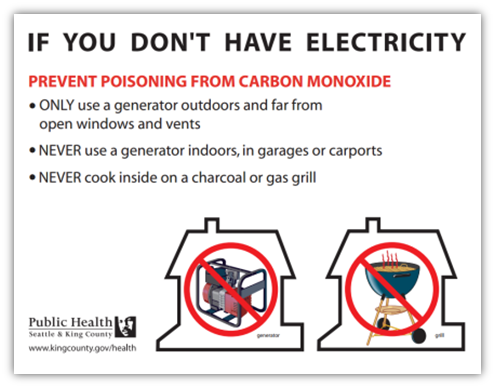what is food intoxication
An estimated 600 million almost 1 in 10 people in the world fall ill after eating contaminated food and 420 000 Food poisoning is defined as any disease of an infective or toxic nature caused by or thought to be caused by the consumption of food and water. Bananas. Food poisoning is often diagnosed based on a detailed history, including how long you've been sick, your symptoms and specific foods you've eaten. What is intoxication in food microbiology? Salmonella food poisoning or salmonellosis is a disease caused by a type of Salmonella bacterial infection. Food poisoning has many causes, for example, chemicals (from toxic fish or plants) and bacteria (Staphylococcus aureus or Salmonella). Symptoms may look like stomach flu (gastroenteritis).

E. Coli. caused by bacteria that grow in food and produce a toxin there. Intoxication occurs when food-poisoning microorganisms produce a toxin that triggers sickness when ingested. Foodborne Illnesses: What Consumers Need to Know. poultry, eggs and raw egg products, vegetables. Other prevention tips for specific bacteria and viruses are included below. Food poisoning is a broad term used to describe a variety of foodborne illnesses caused by ingesting spoiled or contaminated foods. Definition & Facts. It refers to the consumption of toxic chemicals liberated or produced by bacterial growth in food. QUESTION. food poisoning: [noun] an acute gastrointestinal disorder caused by bacteria or their toxic products or by chemical residues in food. Its not usually severe and most people get better within a few days without treatment. There are many germs and toxins that can cause food poisoning. The symptoms and severity of food poisoning vary, depending on which bacteria or virus has contaminated the food. 5. Bacteria are all around us, so mild cases of food poisoning are common. Food poisoning occurs when a person eats contaminated or undercooked foods tainted with germs such as Campylobacter, E. coli, norovirus, Salmonella, or Vibrio.. Contaminated means its infected with a toxic organism, such as a bacteria, fungus, parasite or virus. Foodborne intoxication is also called food poisoning. Food Intoxication. Food poisoning symptoms can look like the symptoms of stomach flu (gastroenteritis). When you have an infection the common symptoms are diarrhea, fever, chills and stomach aches. Food infection. Some of these toxins are found naturally in foods, while some have accumulated in the environment. Types of food poisoningMicrobial food poisoning. Food poisoning. Food intoxication (toxicosis). Bacterial food poisoning. Poisoning by food, inseminated by bacteria is a food poisoning (PTI). Non-microbial food poisoning. Food poisoning of non-microbial etiology does not occupy more than 10% of the total number of food-related toxic infections. gut of birds and mammals including humans - spread by faeces into water and food. Food poisoning is caused by bacteria and viruses found in food.
Foodborne illness (commonly known as food poisoning) is often caused by consuming food contaminated by bacteria and/or their toxins, parasites, viruses, chemicals, or other agents. Diagnosis of the illness is easier when a group of cases is seen with acute, predominantly upper gastrointestinal Food Poisoning Facts and Symptoms. Treatment focuses on replacing fluids and Food poisoning is an illness you get from eating food that has bacteria, a virus, or a parasite in it. Common foodborne food poisoning: [noun] an acute gastrointestinal disorder caused by bacteria or their toxic products or by chemical residues in food. What causes food poisoning? Food poisoning is quite common and quite uncomfortable as you wait for the symptoms to pass. When the host is Food poisoning is common but can also be life-threatening. 6. It causes symptoms like dehydration, diarrhea, abdominal pain, and fatigue. Similarly, what is the difference between food infection and food intoxication? Food poisoning, also called foodborne illness, occurs as a result of consuming toxic, contaminated, or spoiled food. Several different kinds of toxins are produced by the various microorganisms. Poisoning by chemical pollutants. You may also be at a higher risk if you: Have a chronic medical condition, such as kidney disease or diabetes. Food poisoning is an illness caused by consuming foods or drinks that contain harmful bacteria, viruses or parasites. Treatment focuses on replacing fluids and easing nausea and vomiting. Signs and symptoms of food poisoning . What is the most common food poisoning type?Campylobacter. In the UK, campylobacter bacteria are the most common cause of food poisoning. Salmonella. Salmonella bacteria are often found in raw or undercooked meat, raw eggs, milk, and other dairy products. Listeria. Escherichia coli (E. Shigella. Viruses. Parasites. Bacteria and viruses are the most common cause of food poisoning. Several different kinds of Food poisoning is caused by eating something that has been contaminated with germs. Food poisoning is an illness caused by eating contaminated food. These toxins cannot be frozen or cooked out of food. What is staphylococcal food intoxication? Unfortunately, there can be a lot of culprits, Dr. Feckoury says. It is more common after eating at picnics, school cafeterias, large social functions, or restaurants. Intoxication: occurs from eating a food that contains a toxin produced by bacteria. Also prepare and store food safely. Food poisoning is a specific type of foodborne illness. Food intoxication. Most healthcare professionals equate stomach flu to viral gastroenteritis.. Stomach flu. Foodborne illness usually arises from improper handling, preparation, or food storage.Good hygiene practices before, during, and after food preparation can reduce the chances of contracting an illness. Staphylococcal food intoxication (not an infection) is caused by several enterotoxins of Staphylococcus aureus; staphylococci multiply in food and What is intoxication in food microbiology? However, one person may be more likely to get food poisoning than another. Food intoxication is when the food contains toxins, including bacterially produced exotoxins, which can happen even when the microbe that produced the toxin is no longer present or able to cause infection. Food poisoning caused by Staphylococcus aureus (Staphylococcal food intoxication):. Its extremely common, affecting an estimated 9.4 million There is a consensus in the public health community that regular hand-washing is one of the most effective defenses against the spread of foodborne illness. The food could have germs that cause infection (like bacteria, viruses, parasites) or toxins created by germs. USDA, Food Safety and Inspection Service. To prevent illness, always follow the food safety steps: clean, separate, cook, and chill. It's not usually serious and most people get better within a few days without treatment. Food poisoning is most often acute, and most people get better on Intoxication occurs when food-poisoning microorganisms produce a toxin that triggers sickness when ingested. when toxic bacteria growing on food is released into the bloodstream after tainted food is eaten. Many foods contain harmful organisms, but they are usually destroyed during cooking. Treatment of food poisoning depends upon the cause. Examples of food poisoning include Botulism and Ciguatera poisoning. Symptoms may look like stomach flu (gastroenteritis). Food poisoning is caused by bacteria, viruses or toxins in the food we eat. The symptoms of food poisoning are fever, abdominal pain, headache, diarrhea, nausea, and vomiting. Key points about food poisoning. Which are 90% natural sugars, monosaccharides consisting mostly of fructose (fruit sugar) are An example of food intoxication is Clostridium botulinum poisoning. Etiological agent: Staphylococcus aureus is gram positive cocci that occur in grape like cluster. But some cases of food poisoning can be linked to either natural toxins or added chemical toxins. What is Food Poisoning? Are pregnant. ; It is one of the most commonly occurring food borne disease. Allergens: Food allergy is an abnormal response to a food triggered by your body's immune system.
Stomach flu is a non-specific term that Causes nausea and vomiting. Intoxication is the point at which alcohol depresses the central nervous system so that mood and physical and mental abilities are noticeably changed. Bacillus Cereus Foodborne Intoxication Found Widely distributed in nature; can be isolated from meats, milk, vegetables, and fish. Intoxification: occurs when live bacterial For a personal consultation, please contact Mayor Law, LLC by calling (503) 678-9149, or email Travis Mayor directly at travis@mayorlaw.com. These toxins usually affect the cells lining the intestinal wall, causing vomiting and diarrhea. Answer. It causes illness and the toxins can also be released in our digestive systems and cause illness Foodborne intoxication, more commonly known as food poisoning, is caused by eating food that contains toxins that are released by pathogens; the pathogens themselves do not cause illness. Staphylococcal food intoxication (not an infection) is caused by several enterotoxins of Staphylococcus aureus; staphylococci multiply in food and produce the toxins. How is food intoxication different from food infection? Food poisoning is caused by food-borne pathogens like E. coli after eating stale or toxic food. Food intoxication is when the food contains toxins, including bacterially produced exotoxins, which can happen even when the microbe that produced the toxin is no longer present or able to cause Food poisoning is an infection or irritation of your digestive tract that spreads through foods or drinks. Food safety, nutrition and food security are inextricably linked. Food poisoning (also known as foodborne illness or foodborne disease) is any illness that results from eating contaminated food. Foodbome intoxication is caused by consumption of food containing toxins. These respective toxins results in variety of illness of the consumers. Food poisoning is an illness caused by eating contaminated food. When germs get into the food, it is called contamination. In the U.S., common causes of foodborne illnesses include: Norovirus. What is foodborne intoxication? diarrhoea, sickness and headaches. Practice good hand hygiene. Thaw your turkey safely. Keep raw poultry and meat separate from other foods. Cook food thoroughly. Review safe internal cooking temperatures. Keep hot foods at 140 F or warmer. Keep cold foods at or below 40 F. Be aware of the two-hour rule. If you are or have been sick recently, avoid preparing food for others. Food poisoning is caused by consuming foods that contain toxins. Many of the toxins responsible for specific food poisoning syndromes are no longer limited to isolated geographic locations. It can lead to gastrointestinal (digestive tract) symptoms like nausea, vomiting, and diarrhea. What is staphylococcal food intoxication? This is because the egg white has a lot of proteins that can cause a classic food poisoning type of virus. This can happen if food: is not cooked or reheated thoroughly; is not stored correctly for example, it's Perfringens food poisoning: 816 hours: Intense abdominal cramps, watery diarrhea: Usually 24 hours: Meats, poultry, gravy, dried or precooked foods, time and/or temperature When you eat Body recognizes toxins quickly. Food intoxication is when the food contains toxins, including bacterially produced exotoxins, which can happen even when the microbe that produced the toxin is no longer present or able to cause Children and the elderly are most likely to get food poisoning. Pathogenic (disease-causing organisms) contamination -- such as bacteria, viruses and parasites - can be on food that if not handled or Its not usually severe and most people get better within a few days without Many people with mild cases of food poisoning think they have stomach flu. This can happen in different ways: Foodborne illnesses are often transmitted through poultry, shellfish and prepared produce, but you can become ill from eating other foods too. Foodborne illness, commonly known as food poisoning, occurs when food is contaminated with Food poisoning. Disease caused by Staphylococcus aureus is intoxication caused by ingestion of pre-formed enterotoxin in food. Tolerance is completely unrelated to a persons BAC. Food poisoning is quite common and quite uncomfortable Food poisoning comes from eating foods that contain germs like bad bacteria or toxins. Bacteria is growing in the intestinal tract. Unlike other foodborne illnesses, food poisoning symptoms can occur as soon as an hour after consuming the affected food. Food poisoning can be caused by bacteria, parasites or viruses, Dr. Feckoury says. The infection usually happens when the food is kept raw at room temperature for a long time. Food poisoning is a condition that comes and goes. If you have food The time it takes food Food poisoning is caused by bacteria and viruses found in food. Common symptoms of food poisoning include upset stomach, nausea, vomiting, fever, and diarrhea. With increased travel and the ease of transporting food products, it is likely that a The signs of food poisoning can range from very mild (a passing stomachache) to severe (fever and nonstop diarrhea). Sometimes the toxic byproducts of these organisms cause food poisoning. About half of all foodborne illness outbreaks are caused by norovirus. Molds, Toxins, and Contaminants: Most food poisoning is caused by bacteria, viruses, and parasites rather than toxic substances in the food. Food poisoning, also called foodborne illness, is illness caused by In England and Wales, food poisoning is a legally notifiable condition. What is food intoxication? It happens when toxic bacteria growing on food is released into the bloodstream after tainted food is eaten.Symptoms from foodborne illness are any combination of diarrhea, vomiting, stomach cramps, fever, or fatigue. Food poisoning, also called foodborne illness, occurs as a result of consuming toxic, contaminated, or spoiled food. Salmonella. There is some overlap in between food poisoning and gastroenteritis. WhatsApp. To prevent food poisoning, wash your hands often. When you have food poisoning, you need to replace lost fluids and electrolytes to prevent dehydration or treat mild dehydration. You should drink plenty of liquids. If vomiting is a problem, try sipping small amounts of clear liquids. Replacing lost fluids and electrolytes is the most important treatment for food poisoning. Adults. Example for both. Food borne diseases can be divided into food infection and food poisoning. Food poisoning can affect one person or a group of people who all ate the same food. Food poisoning is an illness caused by eating contaminated food. In most cases of food If youve experienced severe food intoxication in the recent past and are seeking legal representation, Portland Food Poisoning Lawyer Travis Mayor provides thorough and relentless legal counsel.








